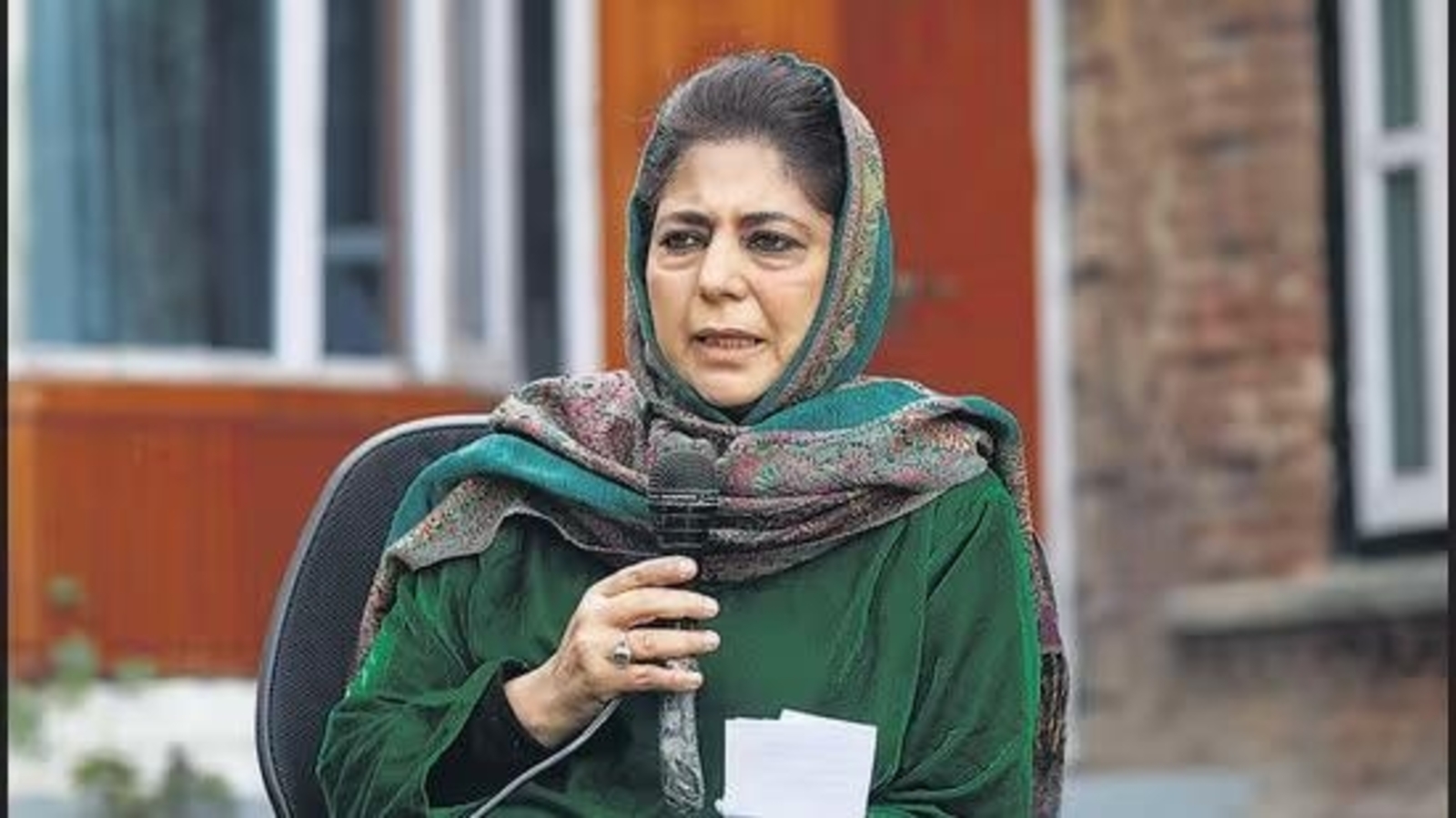Mehbooba Mufti on Waqf Act has become one of the most discussed topics in recent weeks as political and community voices push back against the Waqf (Amendment) Act, 2025. The former Chief Minister of Jammu and Kashmir has urged the Supreme Court to reject the Waqf Act Amendment, calling it unconstitutional and dismissive of Muslim sentiments.
Former Jammu and Kashmir Chief Minister Mehbooba Mufti has added her voice to the growing dissent against the Waqf (Amendment) Act, 2025, urging the Supreme Court of India to reject the legislation in its entirety. In a strong statement, the People’s Democratic Party (PDP) leader asserted that the Act undermines the constitutional rights of Muslims and fails to respect their religious sentiments.
The PDP has also launched state-wide protests in Jammu and Kashmir, reflecting public concern over the amendments. Mufti emphasized that in the absence of a functioning legislative assembly in the Union Territory, people are left with no choice but to protest and seek judicial intervention.
“This is not just about a law—it’s about systematically weakening institutions meant for Muslim welfare,” said Mufti during a press interaction.
Mehbooba Mufti on Waqf Act: Key Concerns About the Amendment
Her primary objections revolve around the removal of “waqf by user” and the inclusion of non-Muslim members in waqf boards. According to Mehbooba Mufti on Waqf Act, these provisions mark a dangerous shift in how religious property is governed.
The Act introduces a range of changes to the way waqf properties are managed in India. Among the most contentious provisions are:
- Renaming the Act: The original Waqf Act, 1995 has been renamed as the Unified Waqf Management, Empowerment, Efficiency and Development (UWMEED) Act, 1995.
- Abolishing “Waqf by User”: This change removes recognition of properties that have historically come into religious use over time, often without formal documentation.
- District Collectors as Survey Authorities: Previously managed by waqf boards, property surveys will now be overseen by district collectors.
- Inclusion of Non-Muslims in Waqf Boards: This provision has triggered significant opposition, with critics arguing it interferes with the religious autonomy of waqf institutions.
Backlash from the Muslim Community
Prominent Muslim organizations such as the All India Muslim Personal Law Board and Jamiat Ulema-e-Hind have condemned the Act. They argue that it threatens the socio-economic role of waqf properties and undermines community control over institutions meant for religious and charitable purposes.
They have also filed legal challenges in the Supreme Court, questioning the constitutionality of the Act. Critics believe that this move is part of a larger trend of centralization and reduced autonomy for minority-run institutions in India.
Supreme Court Involvement
In light of the controversy, the Supreme Court has already begun hearing petitions challenging the Waqf (Amendment) Act. In a recent hearing, the central government assured the court that some of the more controversial provisions—like the inclusion of non-Muslim members in waqf boards and the de-notification of waqf properties—would not be implemented immediately.
Despite this, civil society groups, religious leaders, and opposition parties remain skeptical and continue to push for the law’s repeal.
The Supreme Court is now at the center of the issue. With mounting public protests and legal petitions, Mehbooba Mufti on Waqf Act continues to be a rallying cry for those defending religious rights and waqf autonomy.
Why Mehbooba Mufti Opposes the Waqf Act Amendment?
Mufti’s intervention adds significant political weight to the protests, especially given the unique context of Jammu and Kashmir, where waqf properties play a substantial role in the religious and social infrastructure. Her statement reinforces concerns about the marginalization of Muslim voices in national decision-making processes.
In interviews and press releases, Mehbooba Mufti on Waqf Act has consistently emphasized that the law erodes institutional autonomy and violates Article 25 of the Indian Constitution. She argues that such legislation would never be considered for any other religious community.
Her appeal to the apex court reflects a broader concern — that the amendment may set a dangerous precedent for state interference in religious affairs, particularly affecting minority communities.


















